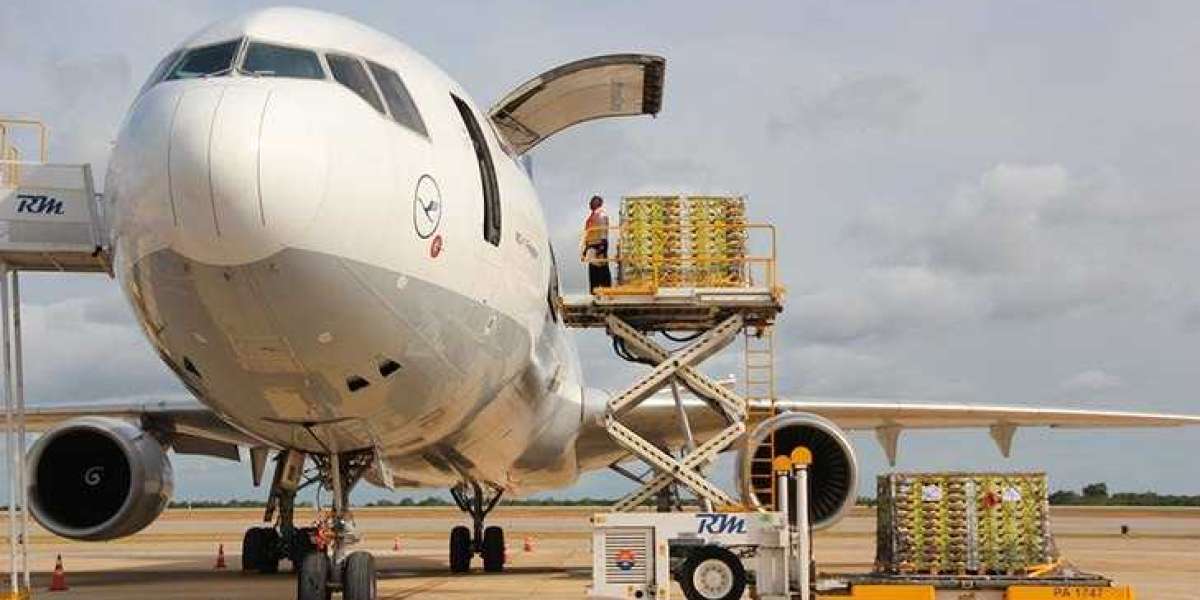Cargo Aircraft Charter Service Market: Trends, Growth, and Opportunities
The cargo aircraft charter service market has seen significant growth in recent years, driven by the increasing demand for rapid and reliable transportation of goods. This sector, critical to global logistics and supply chain management, is influenced by various factors including technological advancements, globalization, and evolving consumer preferences. This article explores the current state of the market, its growth drivers, and the opportunities it presents.
Market Overview
Cargo aircraft charter services involve the leasing of entire aircraft for transporting goods. These services are essential for industries requiring fast and flexible logistics solutions, such as pharmaceuticals, electronics, automotive, and e-commerce. Unlike scheduled air freight services, charter services offer tailored solutions to meet specific logistical needs, providing flexibility in terms of routes, schedules, and cargo types.
[PDF Brochure] Request for Sample Report: https://www.wiseguyreports.com/sample-request?id=543926
Key Market Drivers
E-commerce Boom: The rapid growth of e-commerce has been a major driver for the cargo aircraft charter service market. With consumers expecting faster delivery times, retailers and logistics companies are increasingly relying on air transport to meet these demands. This trend has accelerated the need for dedicated cargo flights, especially during peak shopping seasons and promotional events.
Global Supply Chain Complexity: As supply chains become more global and complex, the need for efficient and reliable transportation solutions has increased. Cargo aircraft charters offer a viable solution for companies needing to transport goods across long distances quickly, particularly for high-value or time-sensitive shipments.
Pharmaceutical Industry Needs: The pharmaceutical industry has unique transportation requirements, particularly for temperature-sensitive products such as vaccines and biologics. Cargo aircraft charters provide the necessary infrastructure and flexibility to handle these specialized needs, ensuring timely and safe delivery.
Technological Advancements: Innovations in aircraft technology, such as the development of more fuel-efficient planes and advancements in cargo handling systems, have enhanced the efficiency and cost-effectiveness of cargo charter services. These technological improvements have made air cargo a more attractive option for a wider range of industries.
Market Segmentation
The cargo aircraft charter service market can be segmented based on aircraft type, application, and end-use industry.
By Aircraft Type: The market includes narrow-body, wide-body, and regional aircraft. Wide-body aircraft are preferred for long-haul flights due to their larger cargo capacity, while narrow-body and regional aircraft are used for shorter routes.
By Application: The market serves various applications including emergency shipments, humanitarian aid, heavy and oversized cargo, and dangerous goods. Each application has specific requirements that charter services can meet more effectively than scheduled flights.
By End-Use Industry: Key industries using cargo aircraft charters include e-commerce, pharmaceuticals, automotive, electronics, and oil and gas. The e-commerce and pharmaceutical sectors are expected to be the fastest-growing segments due to their increasing reliance on air transport for rapid delivery.
Regional Analysis
North America: The largest market for cargo aircraft charters, driven by the presence of major logistics and e-commerce companies. The U.S. is a key player, with a well-established air freight infrastructure and significant demand for fast delivery services.
Europe: A mature market with strong demand from the automotive and pharmaceutical industries. The region's extensive network of airports and advanced logistics infrastructure support the growth of cargo charter services.
Asia-Pacific: The fastest-growing market, fueled by the rapid expansion of e-commerce and manufacturing activities in countries like China and India. The region's rising middle class and increasing consumer spending are also driving demand for air cargo services.
Middle East and Africa: Emerging markets with growing demand for cargo charters, particularly for transporting oil and gas equipment, humanitarian aid, and high-value goods. The region's strategic location makes it a key hub for global air freight.
Opportunities and Challenges
The cargo aircraft charter service market presents several opportunities for growth:
Increased Investment in Infrastructure: Governments and private sector players are investing in airport infrastructure and cargo handling facilities, enhancing the capacity and efficiency of air freight operations.
Sustainability Initiatives: The industry is exploring ways to reduce its environmental impact, such as adopting more fuel-efficient aircraft and optimizing flight routes. These initiatives not only benefit the environment but also help in cost reduction.
Expansion of E-commerce: The continued growth of e-commerce, particularly in emerging markets, offers significant opportunities for cargo charters. Companies are looking to expand their reach and improve delivery times, driving demand for dedicated cargo flights.
However, the market also faces challenges:
Regulatory Hurdles: The industry is subject to stringent regulations regarding safety, security, and environmental impact. Navigating these regulations can be complex and costly.
Volatility in Fuel Prices: Fluctuating fuel prices can impact the cost structure of cargo charter services, affecting profitability. Companies need to adopt strategies to mitigate this risk, such as fuel hedging.
Competition from Other Modes of Transport: While air cargo offers speed, it faces competition from other modes of transport such as sea and rail, which can be more cost-effective for certain types of shipments.
Conclusion
The cargo aircraft charter service market is poised for significant growth, driven by the expanding e-commerce sector, increasing complexity of global supply chains, and the specialized needs of industries such as pharmaceuticals and automotive. While the market faces challenges, opportunities abound for companies that can navigate the regulatory landscape, manage costs effectively, and leverage technological advancements. As the demand for fast and flexible logistics solutions continues to rise, cargo aircraft charters will play an increasingly vital role in the global supply chain.
Browse Complete Report: https://www.wiseguyreports.com/reports/cargo-aircraft-charter-service-market








